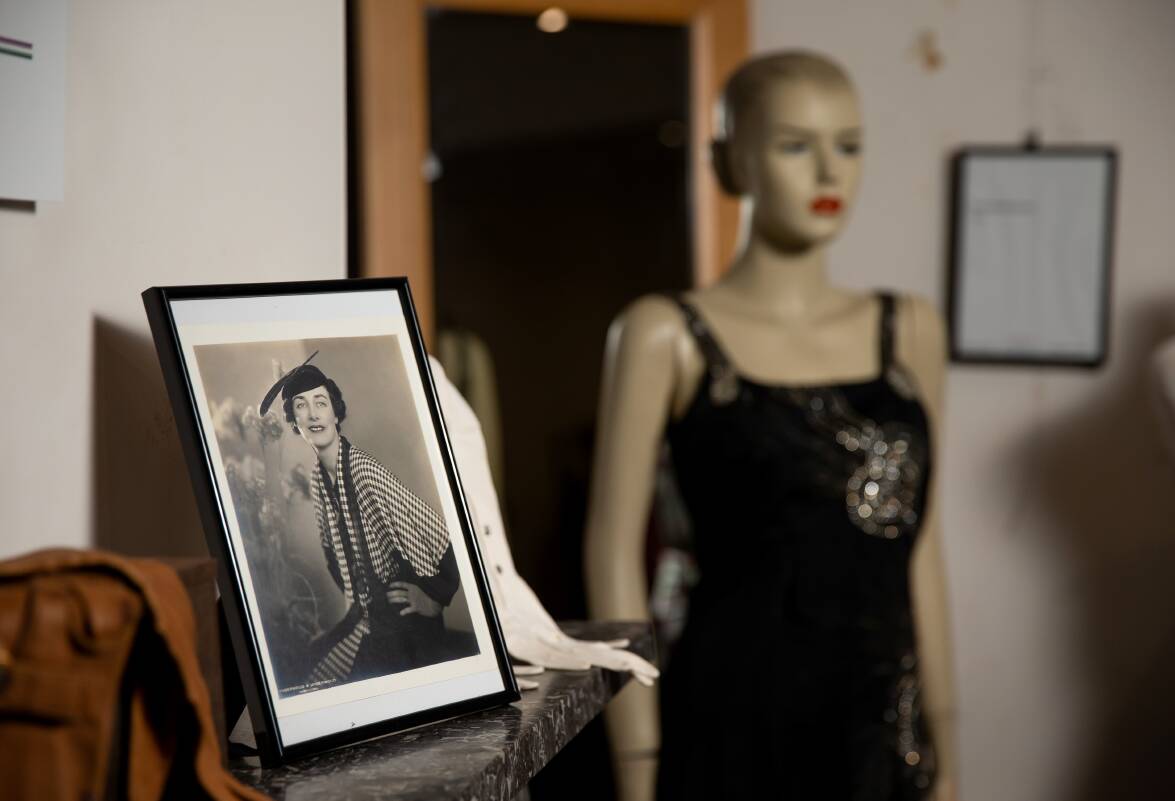
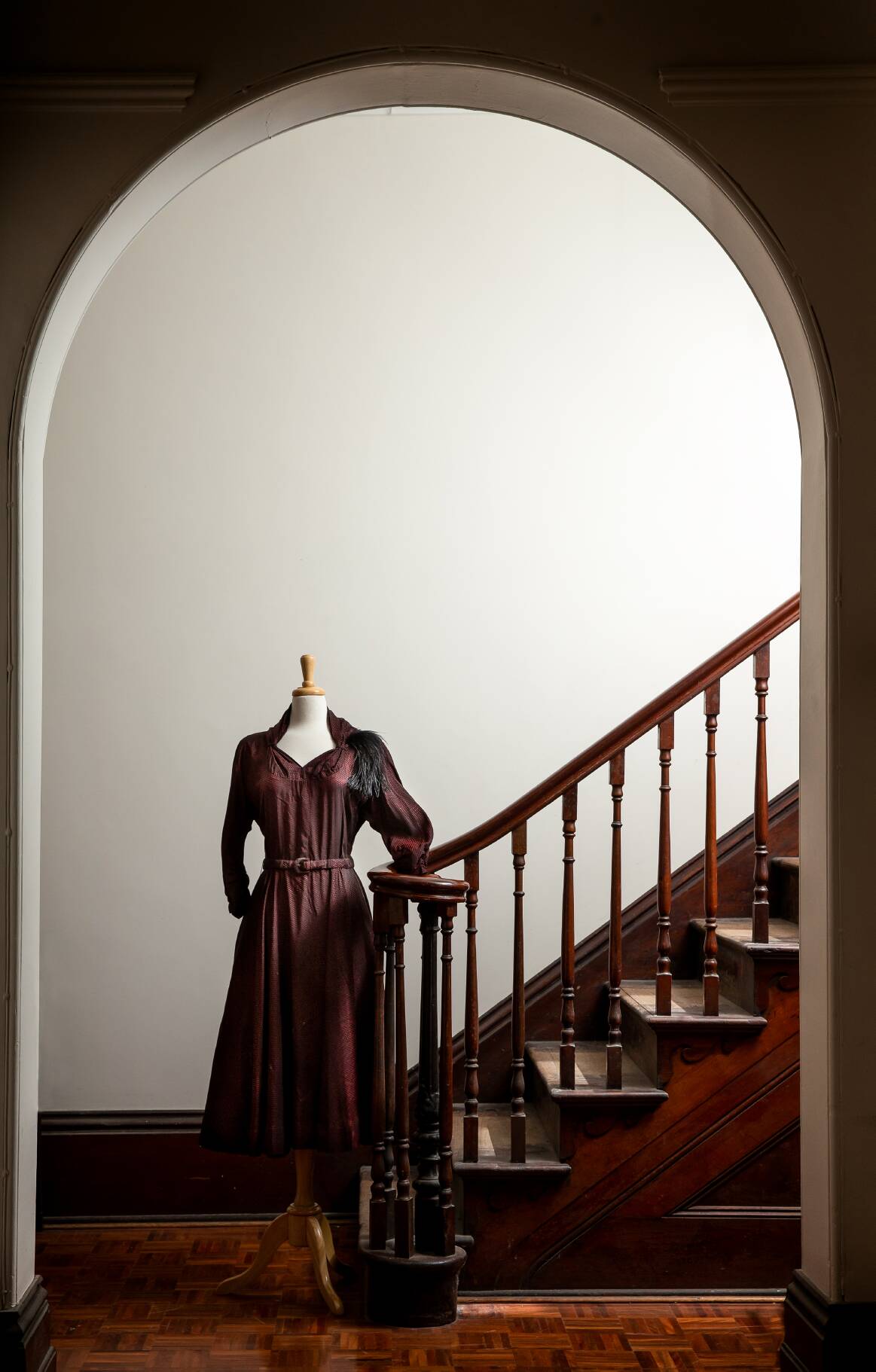
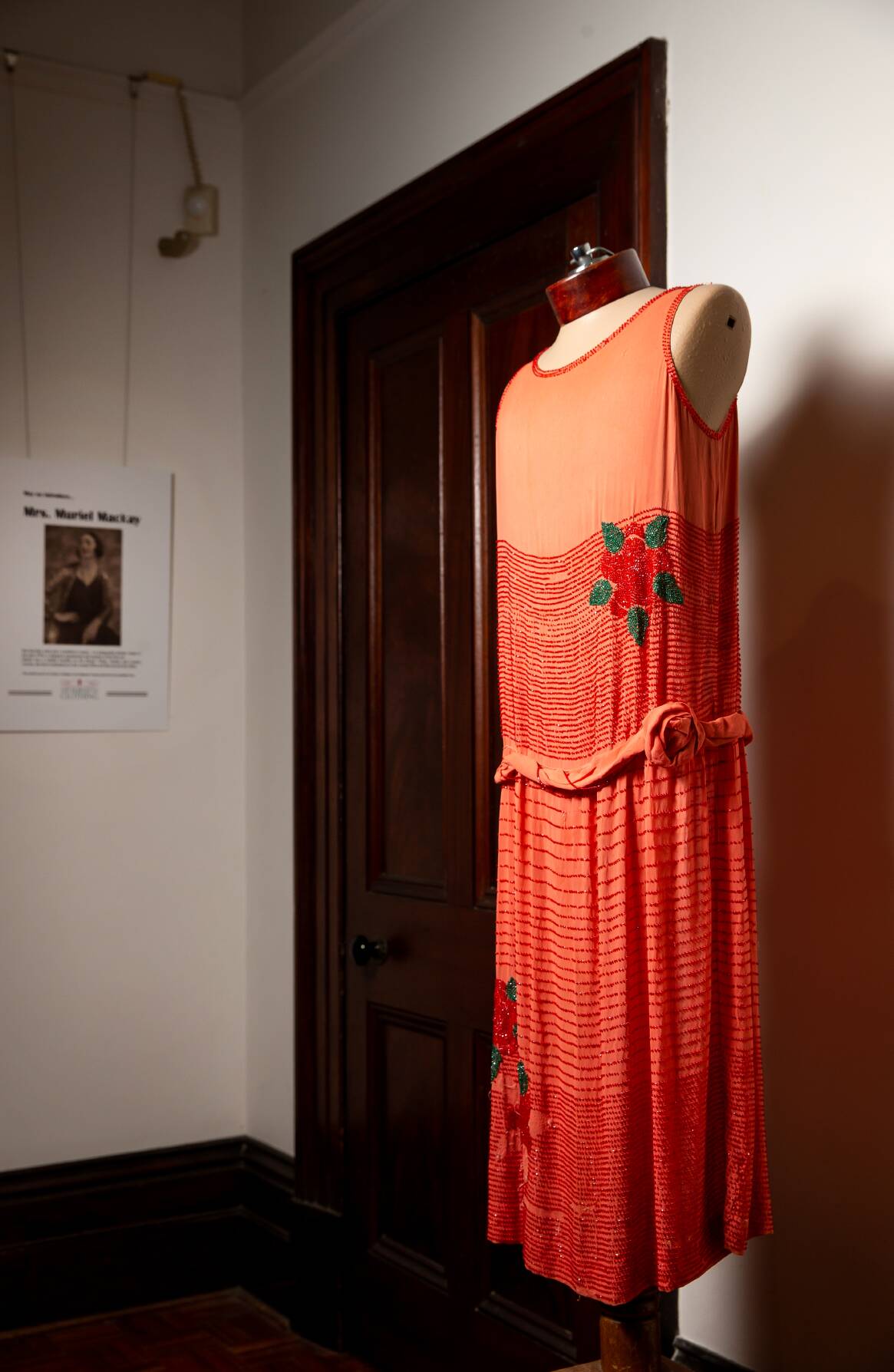
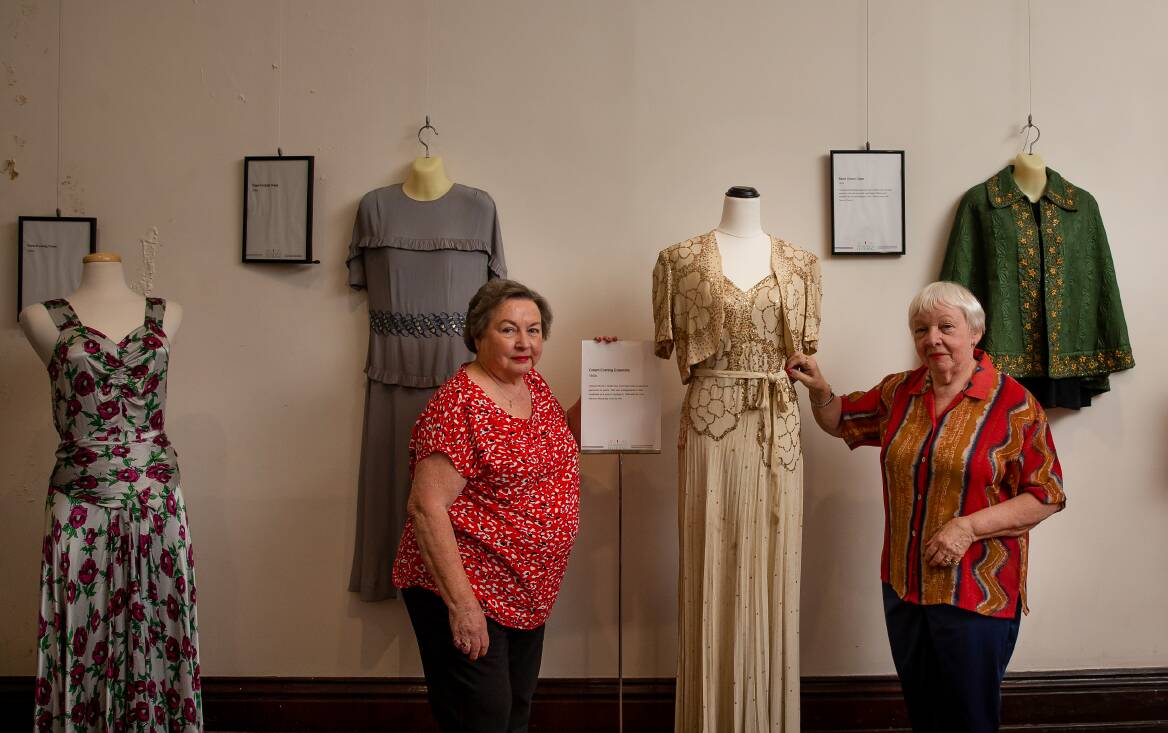
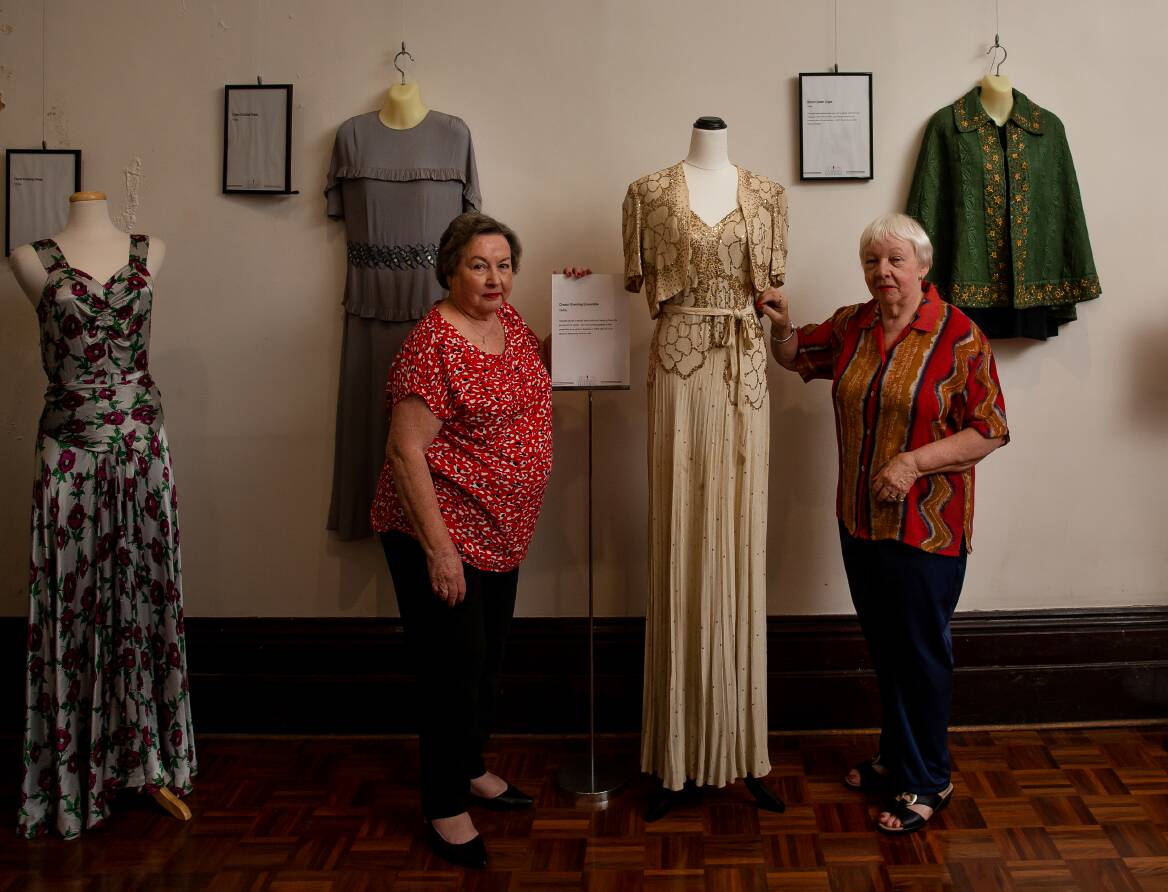
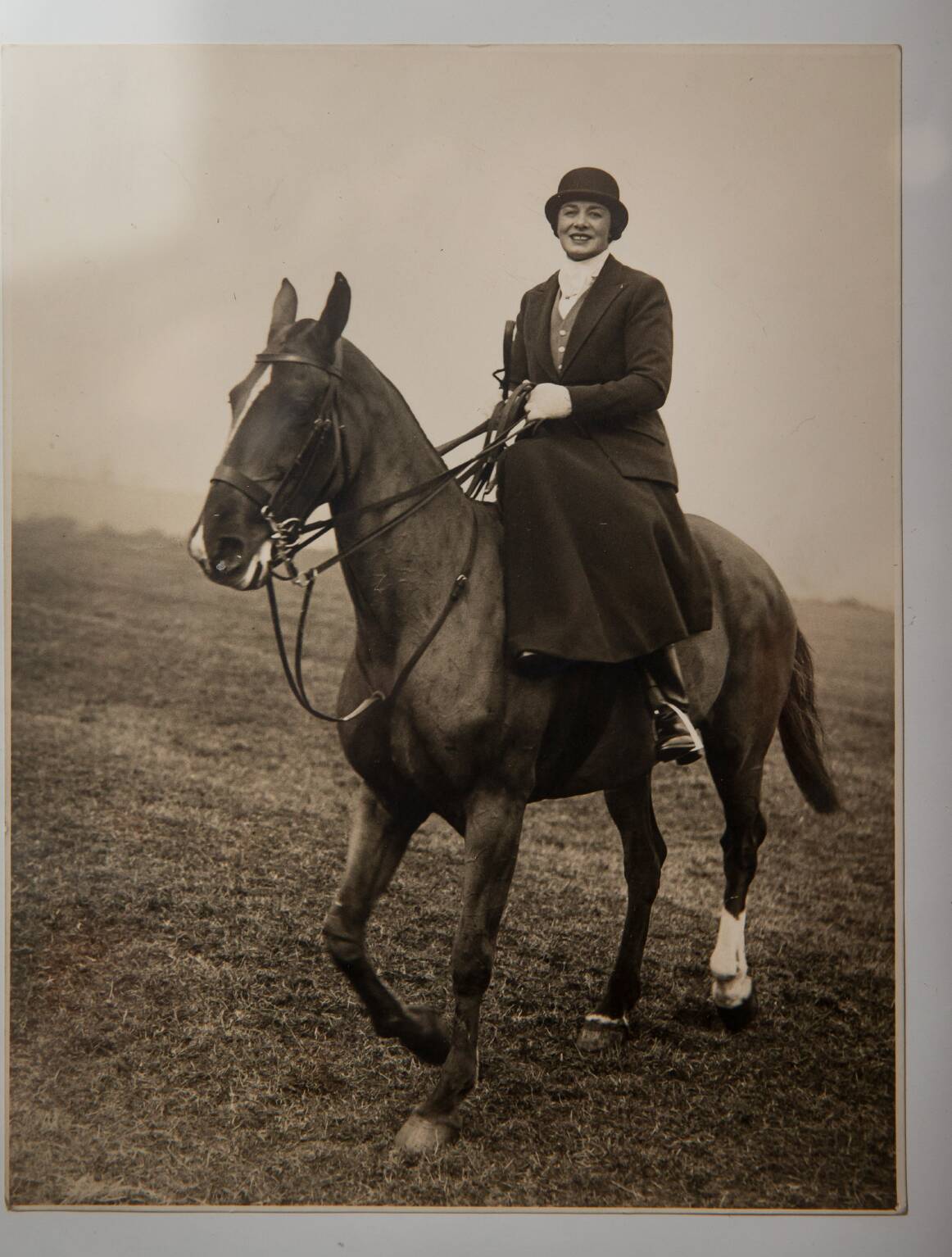
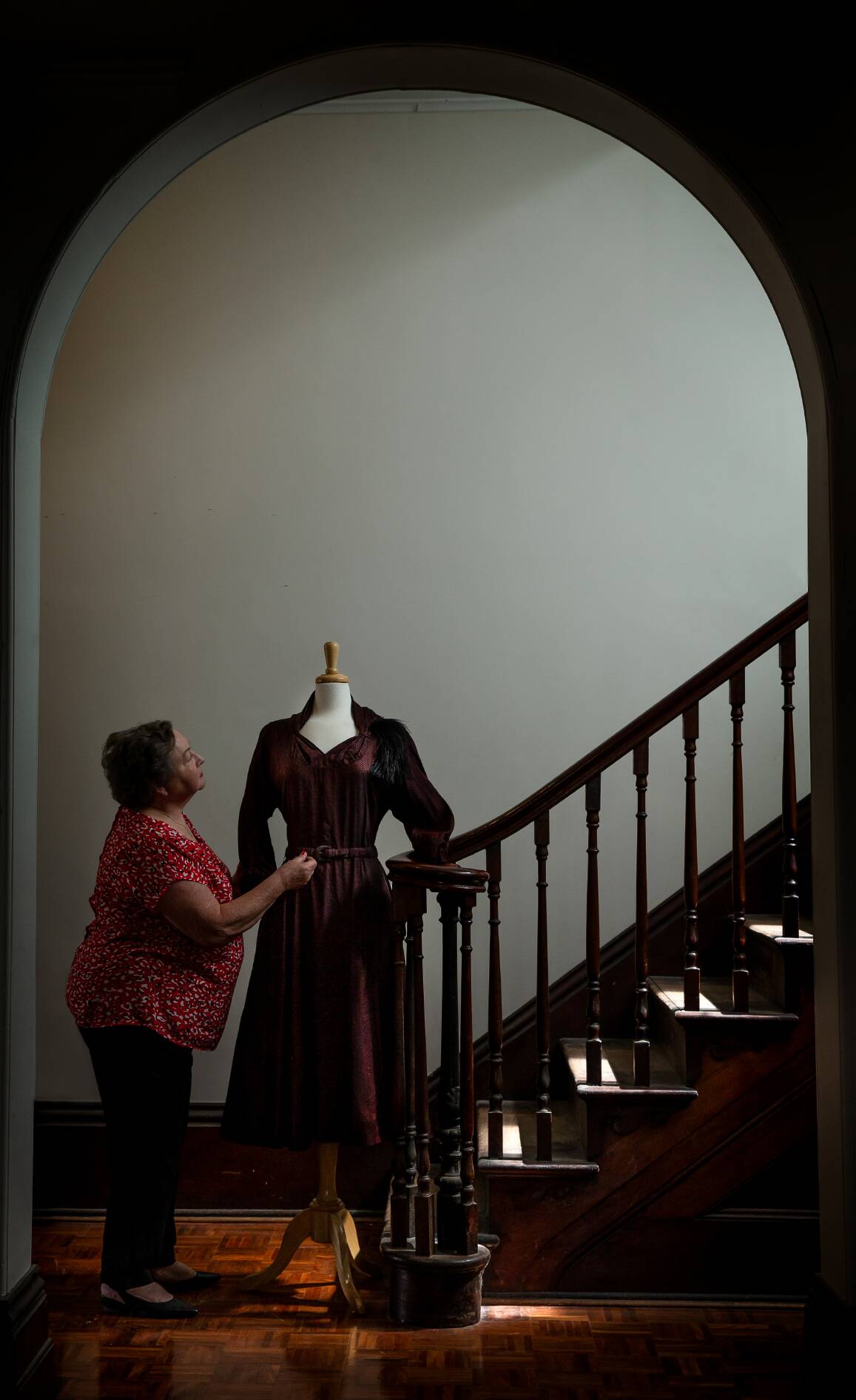
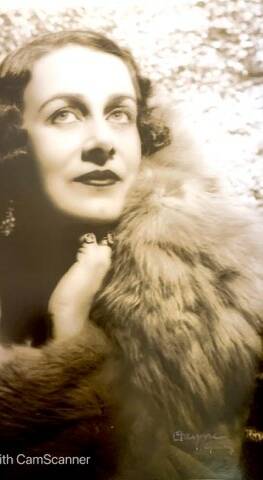
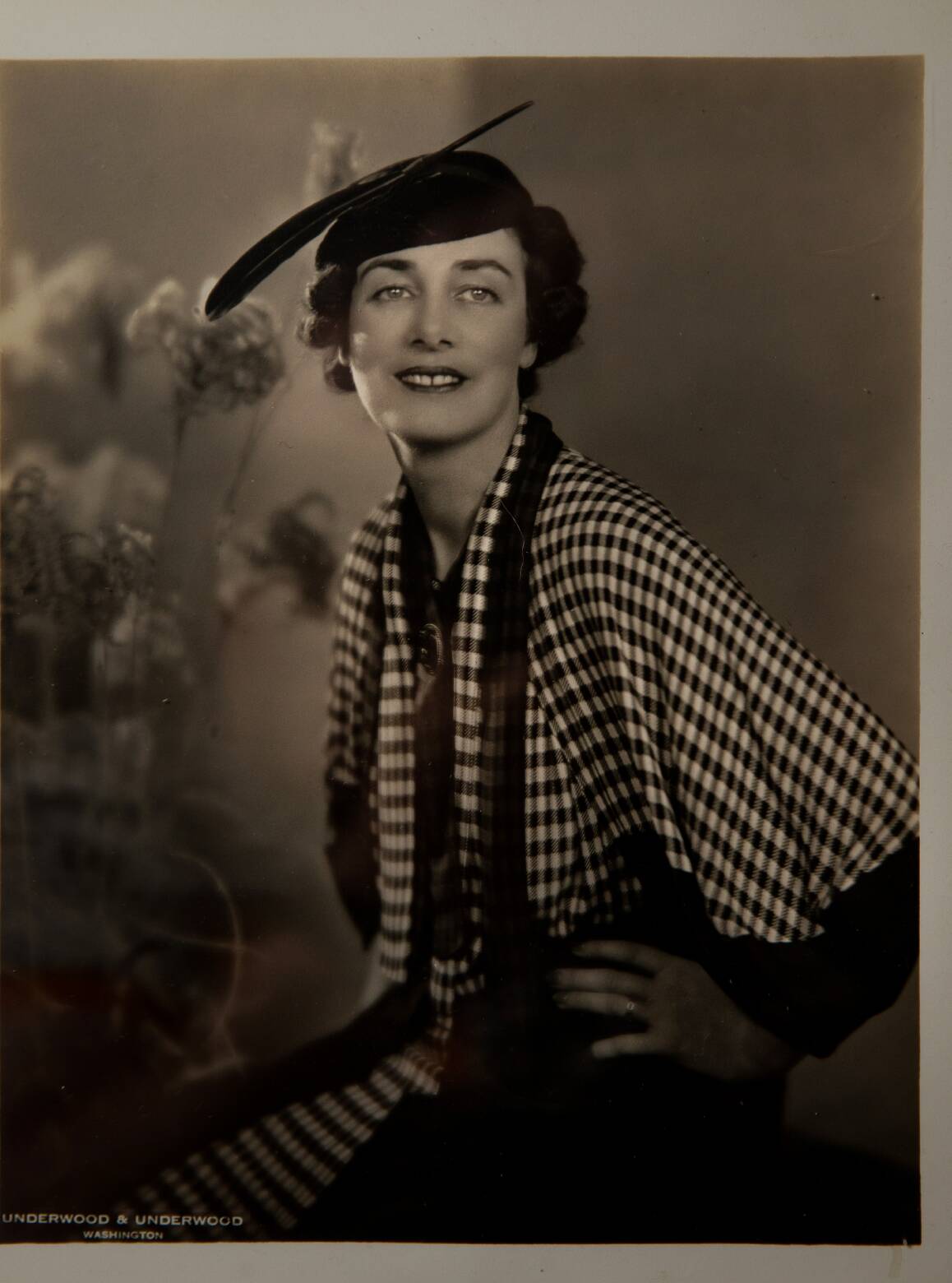

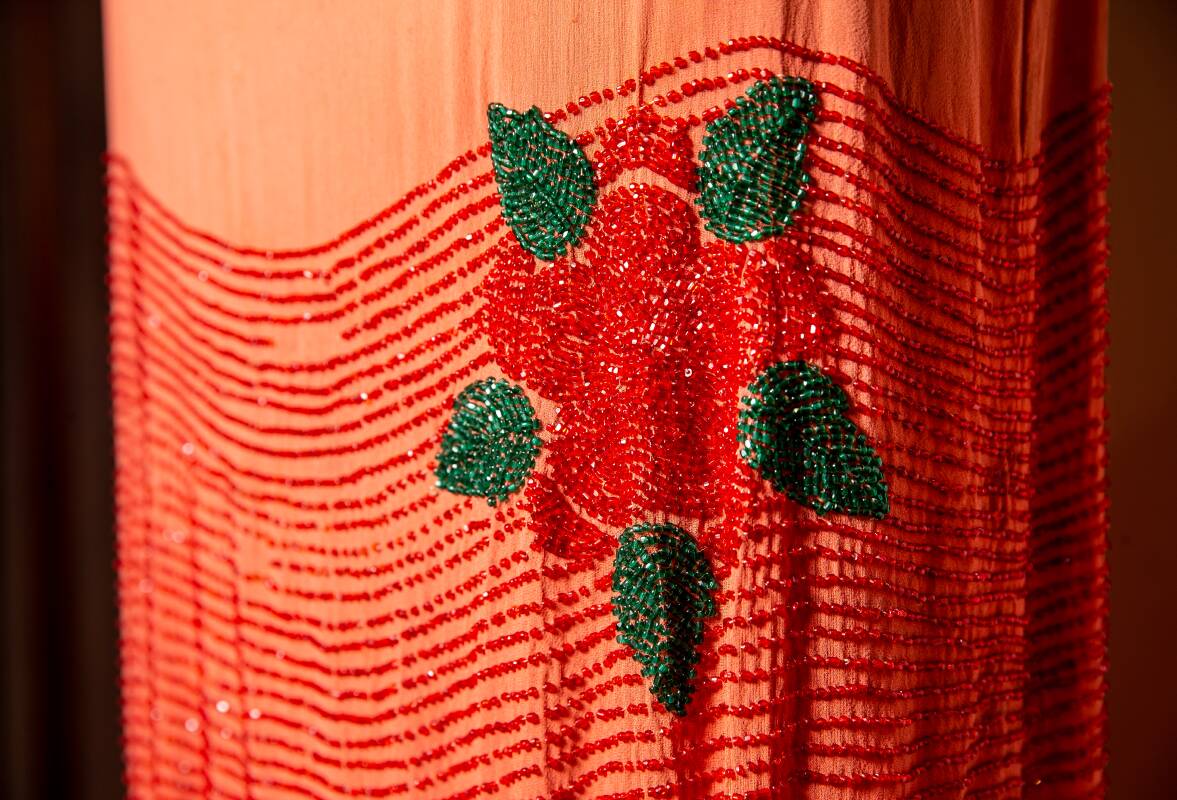
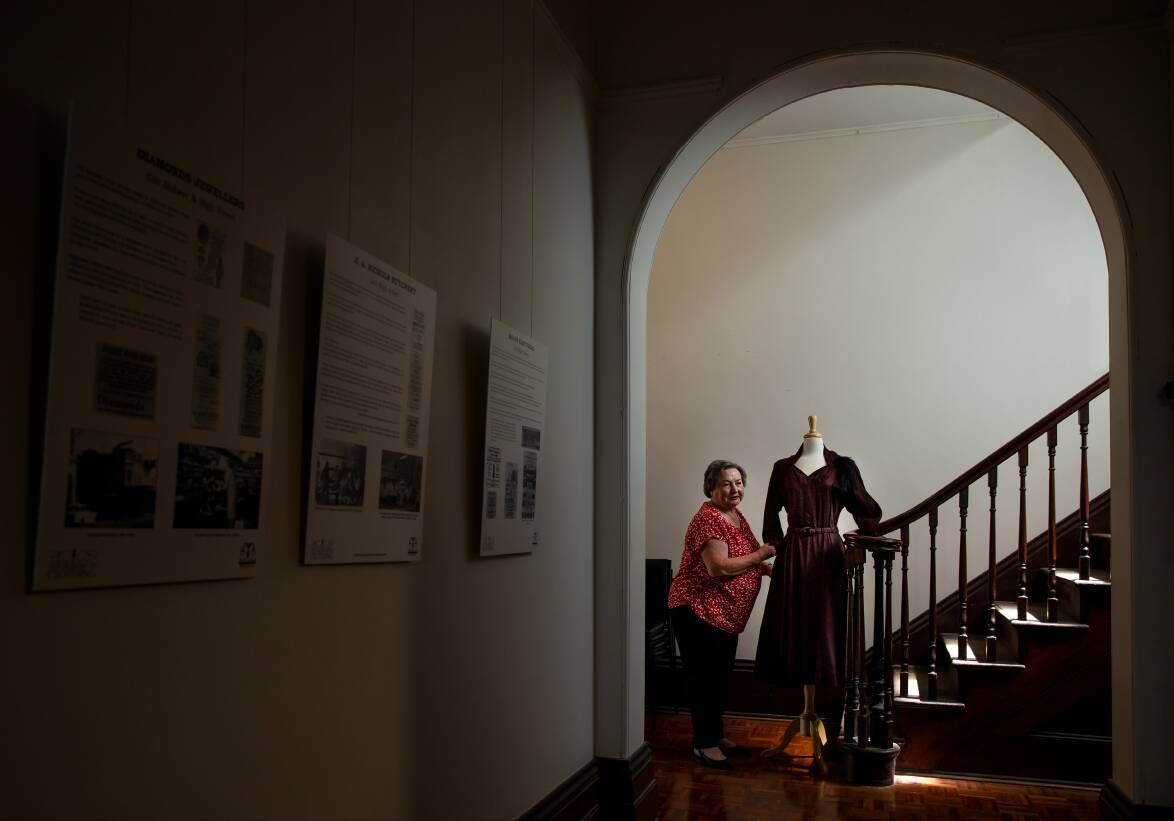
When Muriel Mackay was formally "presented to Court" at Buckingham Palace soon after the coronation of King George VI in 1937, she remarked that her slinky chiffon sequinned gown "was somewhat like" the one worn by the Queen.
Though, "the Queen's dress looked the best".
Also invited to attend the Coronation Ball, Mackay decided she didn't have anything quite befitting that occasion, so she rented a dress - it was a Mozart-era-styled fancy dress ballroom costume, with ostrich feathers and a white wig.
She hired a leading London studio to create a suite of photographs of herself dressed for the ball, and in personal correspondence noted how many compliments she received on her outfit. Those photos, and the sequinned gown, were included in a donation to the Maitland-based Australian Museum of Clothing and Textiles by Mackay's ancestors.
The Muriel Mackay Collection is the museum's largest holding from one person's wardrobe. The first exhibition to be held from the Mackay collection, including the gown that rivalled a Queen's, is currently on show. The exhibition is being held at Brough House in Maitland, as the museum awaits its new exhibition space and archive centre.
Museum president Sandy Earle says the clothing collection, and related memorabilia, is an important and very personal social document. In wearing the fancy dress costume to the Coronation Ball, Mackay was "projecting her identity and making a statement", Earle says.

Much of Mackay's clothing came from Parisian labels, and one item, an embroidered green cape, was a gift from the Queen of Nepal. Newspaper social columnists describe her style as "artistic and smart frocking".
"She dressed to impress," Earle says. "Clothing in her time represented status, it represented far more than we draw from clothing today. That was her making her mark."
Muriel Mackay was born in Raymond Terrace, the daughter of local doctor John Meredith. In 1913 she married grazier and racehorse breeder William (Bill) Hooke Mackay Jnr, of one of the Hunter Valley's wealthiest landholder families. They built Tinagroo Homestead near Scone, where they hosted lavish weekend parties and polo carnivals.
Mackay was an equestrian champion and was photographed on horseback by one of the era's iconic image makers, Harold Cazneaux.
Alongside her extravagant lifestyle, Mackay was involved in the early years of the NSW Country Women's Association (CWA), which is currently celebrating its centenary. An exhibition of the organisation's history will be opened with a cake stall next Friday at Maitland Library.
Mackay led the establishment of 13 CWA branches, including Newcastle and Maitland. She single-handedly raised all of the funds to buy the former Racecourse Inn in Frederick Street, Merewether, which was turned into a holiday home for women and children of the outback, many of whom had never seen the sea.
She also organised the establishment of baby health clinics and ladies' restrooms in country towns.
After divorcing in a blaze of media reportage in the early 1930s, Mackay travelled Europe and was there when war broke out. She drove ambulances behind the front lines in France, worked in a munitions factory and drove stretcher bearers during the night bombings of London. Mackay's wartime diaries and uniform buttons were also given to the museum.
Andrew Mitchell, whose mother Alison is Mackay's niece and had saved her aunt's collection, says that it is fitting for their family's treasured items to be secured in the national museum of clothing, and it "seemed the perfect home" as the museum is situated in the Hunter Valley, coming full circle to where the story had started.
Mitchell says his mother recalled her aunt "as a strong independent woman from the rural Hunter region, who travelled the world and moved in Sydney's high society circles". On the other side of the family tree, down the lineage of Mackay's father's second wife, Hugh-Angus Bright says "Muriel was this enigma". Bright, a Newcastle law student, is writing Mackay's biography.
Jo Cooper has been researching the life of Muriel Mackay for the museum under a Create NSW grant.







